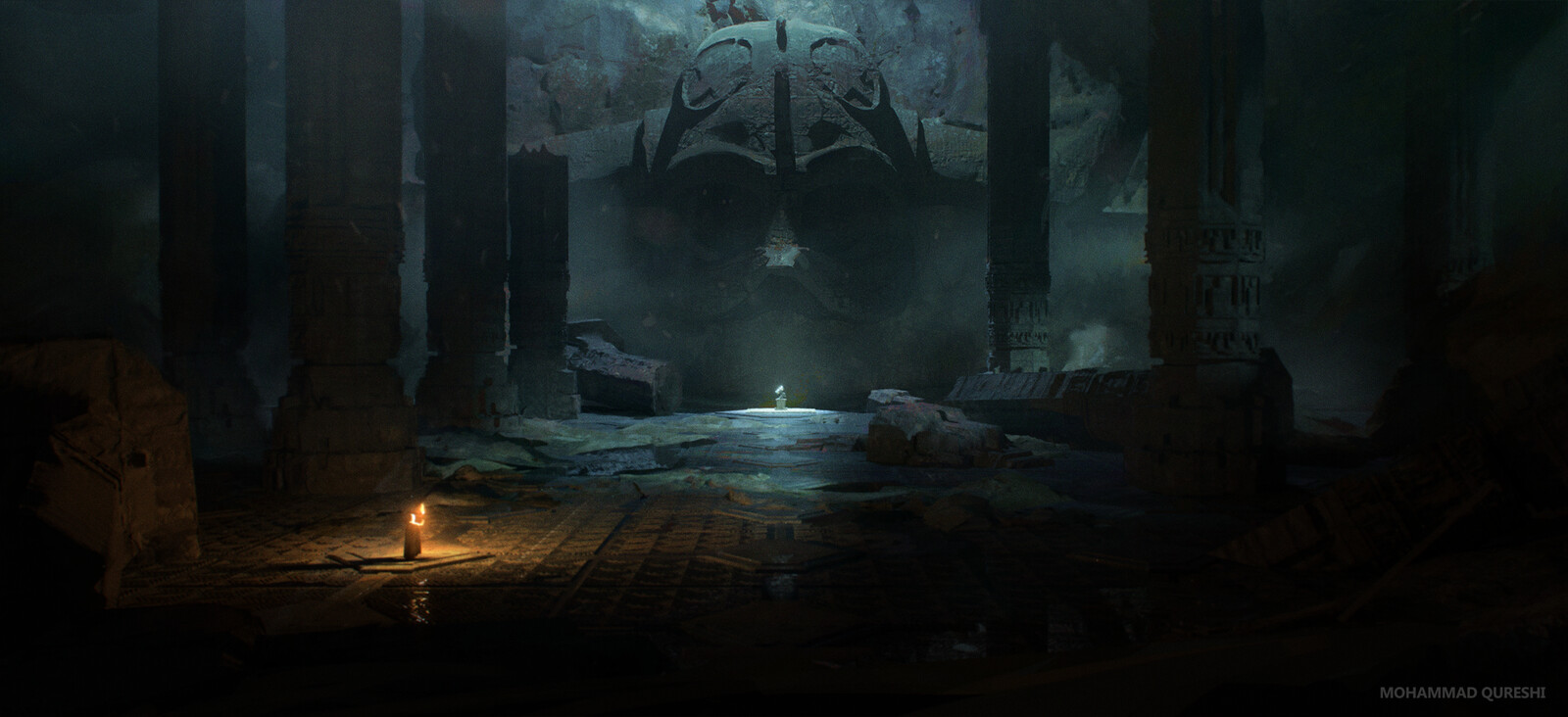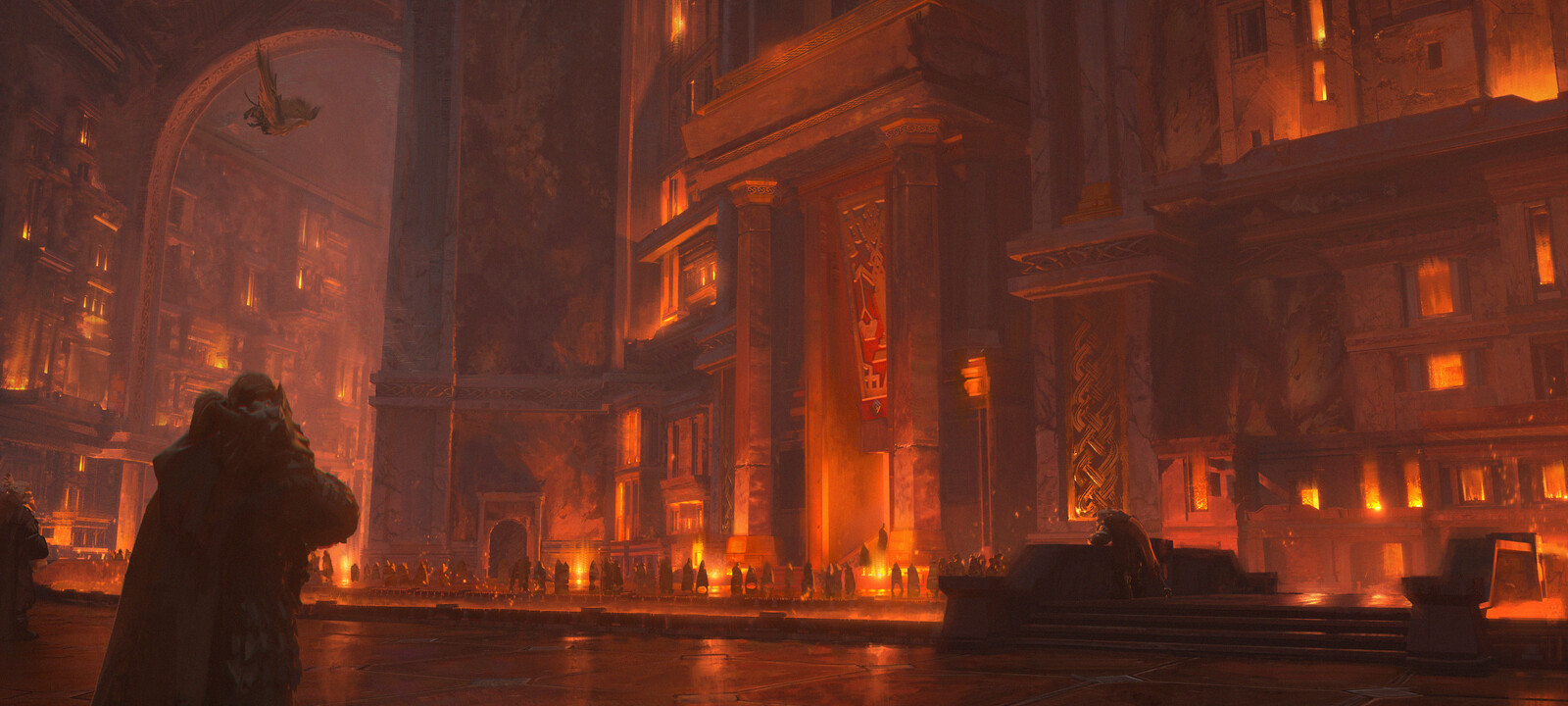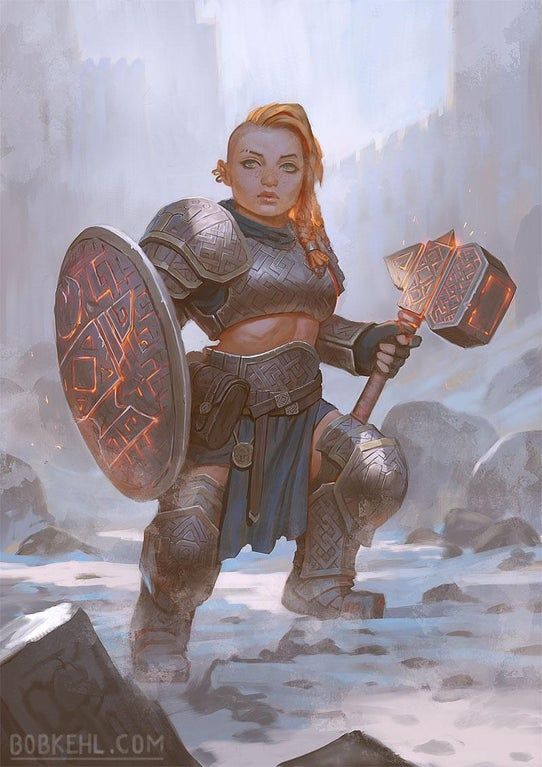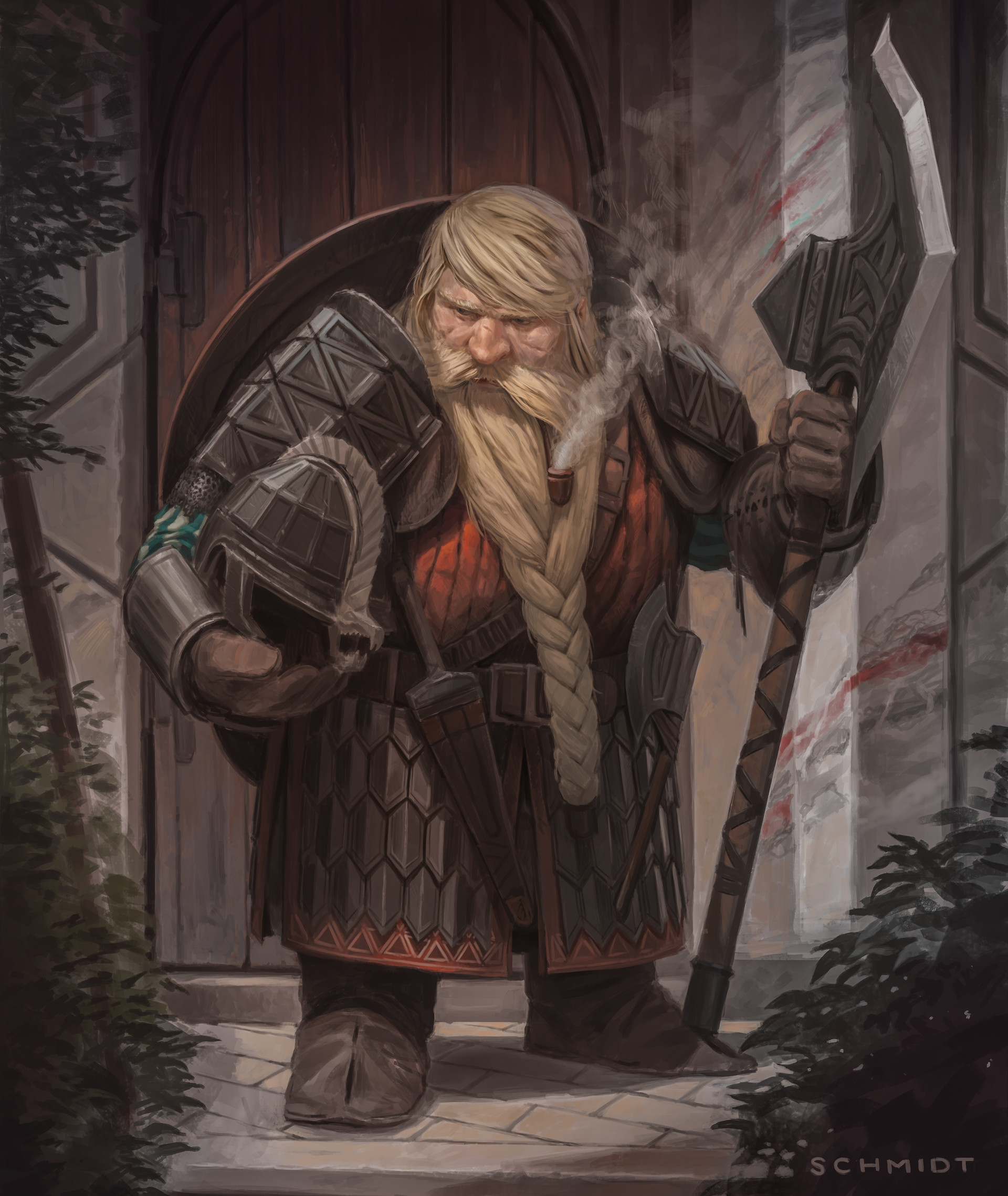Dwarves
The lords beneath the mountains. The proud folk. The sturdy people. Masters of stonework, metal-smithing, and engineering. Inventive in design, conservative in culture. A people of fierce traditions. The Dwarves, like their mountain holds, may seem plain and rough upon the surface, but beneath their hard exterior there is a deepness filled with riches.The Dwarves of Orr are native foremost to the northern lands of Drin and its sprawling, ice-capped mountain ranges. Their keeps and settlements are found deep below the Earth in underground fortresses called Vahl's. These great mega-structures are often fifty or more levels deep, with each tier belonging to its own separate caste. The Vahl's are very much like nations unto themselves, and the affairs of the Dwarves, kept so private from the rest of the world, go virtually unnoticed in the greater realms. The Dwarven people are lead by Kings, and Queens, crowned by Longbraid Councils made up of the eldest of their people. The members of these councils are drawn from each of the castes, who pontificate on behalf of their tier of the hold, and together act as representatives to all the concerns of the Vahl. When a ruler of the Vahl passes on into the afterlife, their children are vetted by the same council by which they were elected, and while rare, it is not unheard of that the Longbraids might choose a new successor, beginning an entirely new dynasty. So it has been since the first King was crowned, so shall it be until the mountains themselves have been swept flat by wind, rain, or the very end of the world. Serving beneath these rulers are the Thanes. The Thanes of a Dwarven Vahl are similar to Dukes in more traditional feudal systems, except their governance is outside the Vahl, not within. Thanes are sent as emissaries into the kingdoms and realms of the world. They are responsible for seeing to the prosperity of the people. They sell the metalwork, crafts and precious materials mined from the Vahl, in exchange for supplies and goods which the people of the mountain could not acquire on their own. They also act as diplomats to the rulers of the various nations of Orr, sometimes offering the services of the Vahl's warriors, or obtain commissions for fortresses and other stonecrafting by the guilds of the mountain. Thanes are hand-selected by the Kings and Queens of the Vahls, but the Longbraid Councils act as the final arbiter as to whether a Thane is appointed. In terms of social hierarchy, the remainder of the Vahl's denizens are considered the Guilded. That is to say, they belong to the various crafts guilds of the Vahl and are responsible for the life and upkeep of the hold. Whichever guild a Dwarf is born in is the guild they remain throughout their life unless they are appointed Thane (or in some incredible turn of fate, King or Queen). The Dwarves keep immaculate records of guild lineage, and are often able to trace back the members of their hold for over ten generations. This sense of tradition, and passing on one's work to their successors is why some believe that the Dwarves are the greatest of craftsmen in the world, although outsiders often forget that the warriors of the Vahl are in fact a similar guild and station as their stone-workers.
"The mountain does not want for new hills to rest its stones. It will stand where it has always stood."
Though many Dwarves would never dream of breaking the ancient tradition of caste inheritance, and are content in their purpose, those that do must make a harrowing choice as to whether they will leave the Vahl. Abandoning the Vahl is no simple decision. It means leaving their family and way of life behind, leaving with only what they can carry on their backs, and journeying into an unknown world.






Comments